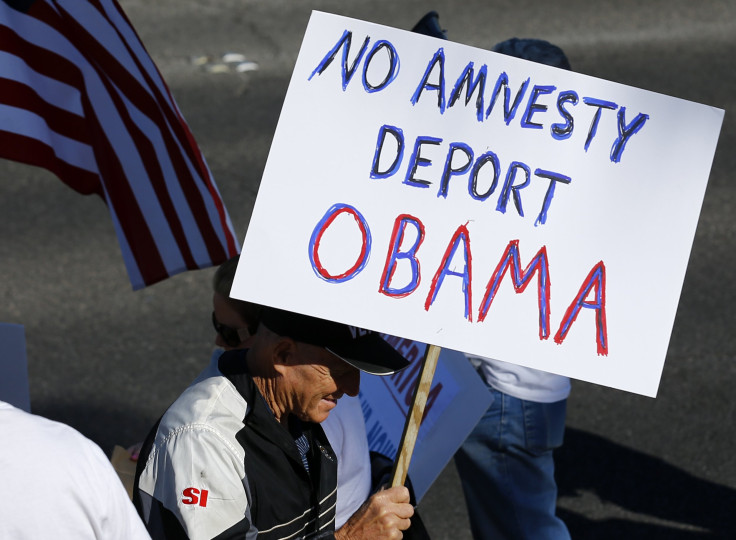Obama Immigration Reform 2014: President's Policy Would Likely See Messy Implementation Because Of State Laws

President Barack Obama's latest executive orders on immigration are designed to show Congress who is boss. But it's state lawmakers who could really sabotage his plans to overhaul U.S. immigration policies and extend residency rights to millions of illegal immigrants.
While the federal government officially decides who gets to stay in the country and who gets deported, state governments control laws that could determine how the Obama administration's policies are actually put into place, including who qualifies for state identification cards, driver's licenses, admission to public schools, in-state tuition, unemployment benefits and other programs that affect people day to day, say immigration experts. That means immigrants in states led by Republicans could face a tougher road than immigrants in states with lawmakers who support Obama's policies.
"It depends on the state provisions, and it is all different from state to state," said Karla McKanders, a professor with the immigration clinic at the University of Tennessee College of Law.
Republicans will control most state governments after the 2014 elections, but two of the largest states, with large immigrant populations, California and New York, are ruled by Democrats.
Obama's latest immigration policy announced during a televised address to the nation Thursday night would shield the parents of children who are either U.S. citizens or legal residents from deportation and would extend new rights to children who were brought into the country illegally with their parents. Those who qualify would also be allowed to work legally after meeting certain requirements.
This won't be the first time the federal government has directed state governments to accept illegal immigrants.
Under President Ronald Reagan's 1986 Immigration Reform and Control Act -- called an "amnesty" by its critics -- immigrants were able to take certain steps toward citizenship if they met various requirements, including having lived in the United States since 1982. About 2.7 million people got legal status under that initiative. State reaction varied depending on the political will of local government officials. For example, in more progressive cities, such as Los Angeles and Chicago, local governments worked to educate their immigrant populations about how to apply for legal status. New York City set up a government-funded hotline to provide answers on the immigration overhaul, according to a Pew Charitable Trust report on the roles of states in immigration law published in April 2014.
Obama's previous immigration move, the Deferred Action for Childhood Arrivals in 2012, also provides some insight into the unpredictable legal maze looming ahead of immigrants hoping to benefit from his latest measure. The DACA program provided temporary legal rights to young people brought to the country as children who met other education, age and residency requirements. Cities with Democratic leaders again reached out to immigrant communities to help them access any available benefits. In Dallas, for example, public libraries were tasked with helping applicants fill out the paperwork online, according to the Pew report. New York and San Diego also rushed to provide transcripts so young people could comply with the residency requirement.
Immigrants in states with Republican leaders often did not receive similar assistance. What's more, some Republican state governments refused to accept that the immigrants had legal status and would not grant them additional rights.
Arizona, which famously passed the nation's strictest anti-immigrant law in 2010, refused to grant DACA beneficiaries driver's licenses or in-state tuition at public colleges and universities. Nebraska took a similar approach. In North Carolina, young immigrants benefiting from the policy were also denied in-state tuition, even if they had graduated from local high schools. Alabama and South Carolina went as far as to prohibit illegal immigrants from attending public colleges and universities, according to Washington Monthly.
At the federal level, there is likely nothing that would stop the Obama administration from carrying out its policy, despite Republican majorities in the next Congress. But it's unclear if state Republican lawmakers will create roadblocks, said Muzaffar Chishti, director of the Migration Policy Institute's office at New York University School of Law.
"The honest answer is we don't know what will happen yet," he said. "Are the states that are really upset about the president's action going to be more likely to bar these people from eligibility from driver's licenses and other benefits? But of those, there may be governors who say this is a futile legal exercise."
© Copyright IBTimes 2024. All rights reserved.






















